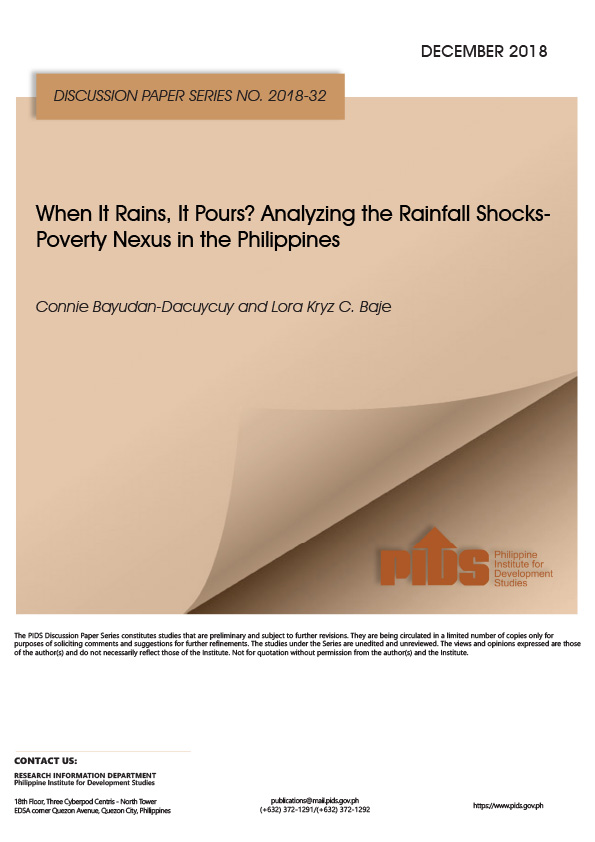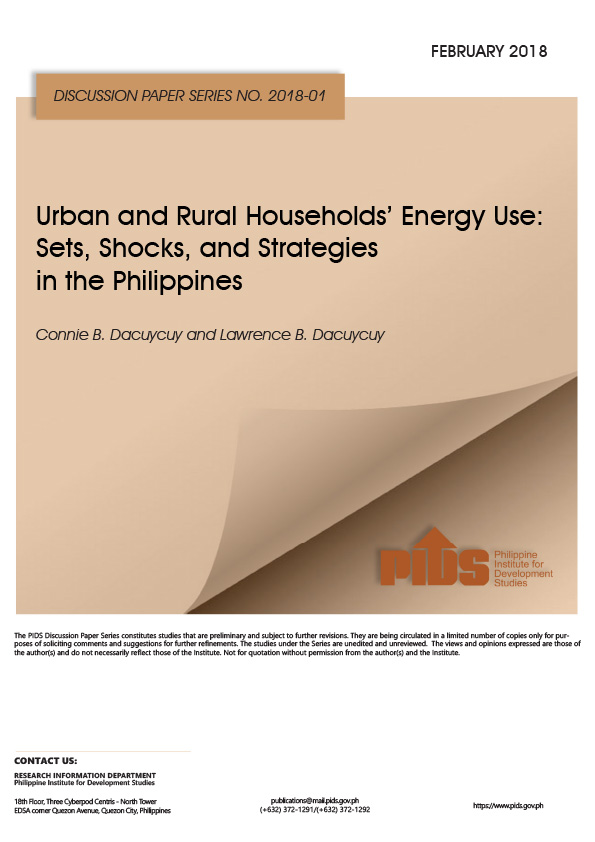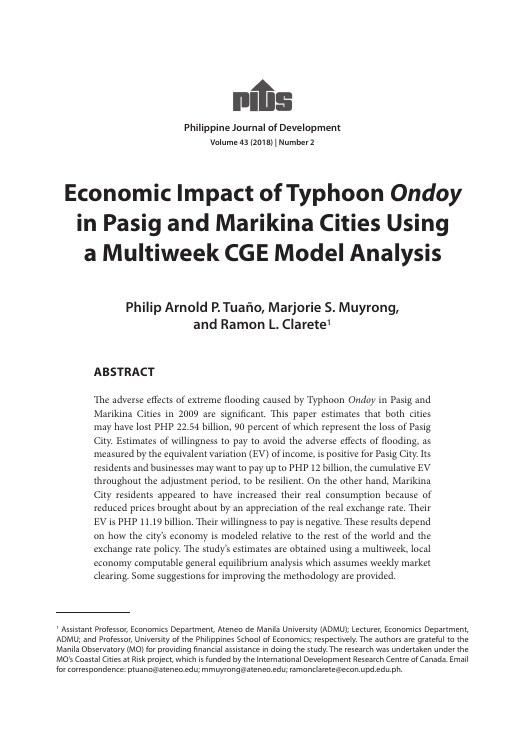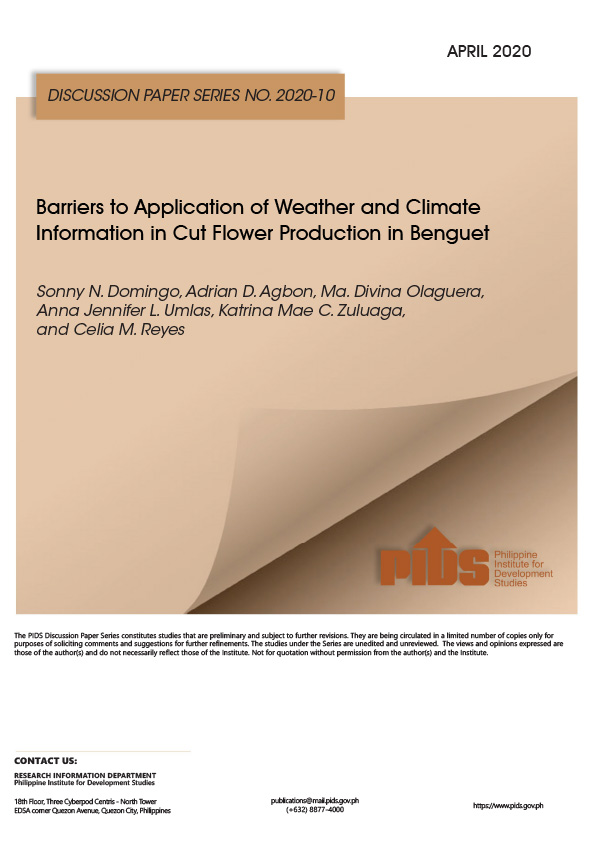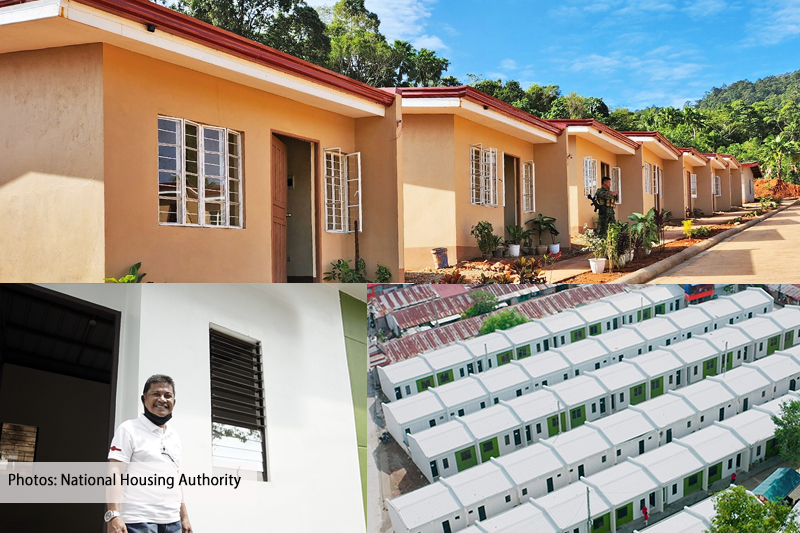Given the evidence that points to climate change resulting in altered patterns of weather parameters and given that the Philippines is one of the most vulnerable countries to climatic shifts, this paper aims to contribute to poverty studies in the Philippines by analyzing the poverty-rainfall shock nexus. The paper finds that rainfall shocks affect wages and income, which in turn, affect chronic total and chronic food poverty. Given that local government units (LGUs) are in the forefront of the country’s fight against the adverse effects of climate change, some policy directions are forwarded so that LGUs can better address issues on climate change, including the development of climate-smart agriculture and additional funding sources for projects on climate change adaptation. Partly due to exclusion errors, there are deserving households that are not part of the Pantawid Pamilyang Pilipino Program (4Ps). Suggestions are forwarded not only to improve the 4Ps’ data management to accommodate vertical scale-up but also to ensure that the program covers deserving beneficiaries as well. Policy directions on the development of adaptive social protection are also forwarded.
Citations
This publication has been cited 1 time
- Eagle Watch. 2019. Resiliency and sustainability in the face of industry 4.0. BusinessMirror.

